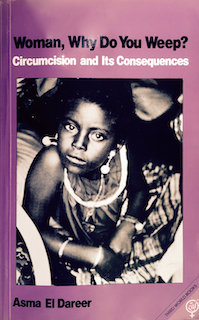Woman, Why Do You Weep?
[[File:
Woman, Why Do You Weep? is a significant phrase found within the Christian New Testament, specifically in the Gospel of John (John 20:13-15). This question is posed by angels to Mary Magdalene at the tomb of Jesus Christ following his crucifixion and subsequent resurrection. The phrase encapsulates a moment of profound emotional and spiritual revelation, highlighting themes of mourning, hope, and the transformative power of faith.
Context[edit | edit source]
After the crucifixion of Jesus, Mary Magdalene visits his tomb early in the morning only to find it empty. Distraught, she stands outside the tomb weeping. As she weeps, she stoops to look into the tomb and sees two angels in white, seated where Jesus' body had been, one at the head and the other at the foot. They ask her, "Woman, why do you weep?" She responds, believing Jesus' body has been taken away, not yet understanding the reality of his resurrection. This encounter precedes a pivotal moment where Jesus himself appears to her, asking the same question, "Woman, why do you weep? Whom are you seeking?" Mary initially does not recognize Jesus until he calls her by name, leading to her recognition and proclamation of seeing the Lord.
Interpretation[edit | edit source]
The question "Woman, why do you weep?" carries deep theological and emotional layers. It challenges the reader to consider the nature of grief, the reality of loss, and the hope of resurrection. In the context of the Gospel, it serves as a turning point for Mary Magdalene and the disciples, from despair to joy, from mourning to understanding. This moment is often interpreted as a testament to the personal relationship Jesus had with his followers, and his compassion and understanding of human sorrow.
Cultural and Religious Significance[edit | edit source]
Throughout Christian art and liturgy, the encounter at the tomb has been a source of inspiration. It reflects the theme of recognition and revelation, where true understanding comes not through seeing but through faith and love. The phrase "Woman, why do you weep?" has been used in sermons, theological discussions, and spiritual reflections to explore the depth of human emotion and the promise of eternal life.
See Also[edit | edit source]
This article is a Christianity-related stub. You can help WikiMD by expanding it!
Search WikiMD
Ad.Tired of being Overweight? Try W8MD's physician weight loss program.
Semaglutide (Ozempic / Wegovy and Tirzepatide (Mounjaro / Zepbound) available.
Advertise on WikiMD
|
WikiMD's Wellness Encyclopedia |
| Let Food Be Thy Medicine Medicine Thy Food - Hippocrates |
Translate this page: - East Asian
中文,
日本,
한국어,
South Asian
हिन्दी,
தமிழ்,
తెలుగు,
Urdu,
ಕನ್ನಡ,
Southeast Asian
Indonesian,
Vietnamese,
Thai,
မြန်မာဘာသာ,
বাংলা
European
español,
Deutsch,
français,
Greek,
português do Brasil,
polski,
română,
русский,
Nederlands,
norsk,
svenska,
suomi,
Italian
Middle Eastern & African
عربى,
Turkish,
Persian,
Hebrew,
Afrikaans,
isiZulu,
Kiswahili,
Other
Bulgarian,
Hungarian,
Czech,
Swedish,
മലയാളം,
मराठी,
ਪੰਜਾਬੀ,
ગુજરાતી,
Portuguese,
Ukrainian
Medical Disclaimer: WikiMD is not a substitute for professional medical advice. The information on WikiMD is provided as an information resource only, may be incorrect, outdated or misleading, and is not to be used or relied on for any diagnostic or treatment purposes. Please consult your health care provider before making any healthcare decisions or for guidance about a specific medical condition. WikiMD expressly disclaims responsibility, and shall have no liability, for any damages, loss, injury, or liability whatsoever suffered as a result of your reliance on the information contained in this site. By visiting this site you agree to the foregoing terms and conditions, which may from time to time be changed or supplemented by WikiMD. If you do not agree to the foregoing terms and conditions, you should not enter or use this site. See full disclaimer.
Credits:Most images are courtesy of Wikimedia commons, and templates, categories Wikipedia, licensed under CC BY SA or similar.
Contributors: Prab R. Tumpati, MD

